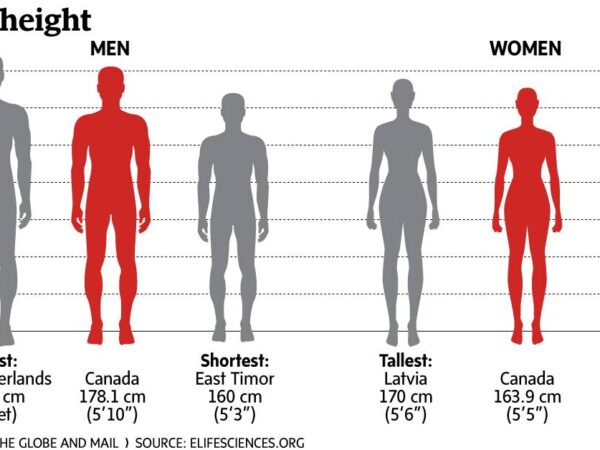In the dynamic world of commerce, Retailer Is a Person Who Sells the Goods in a play a crucial role as intermediaries between manufacturers and consumers. A retailer, defined as a person who sells goods directly to consumers, is the backbone of a successful business. In this article, we delve into the essence of retailing and explore 10 compelling reasons why retailers are indispensable in driving business success.
1. Bridge Between Manufacturers and Consumers: Retailer Is a Person Who Sells the Goods in a
Retailers serve as a crucial link in the supply chain, connecting manufacturers with end consumers. They facilitate the distribution of goods from production facilities to retail shelves, ensuring that products reach their intended audience efficiently.
2. Expertise in Product Curation and Presentation:
Retailer Is a Person Who Sells the Goods in a possess a keen understanding of consumer preferences and market trends. They leverage this knowledge to curate an assortment of products tailored to their target audience, enhancing the shopping experience and driving sales.
3. Facilitating Convenience and Accessibility:
By establishing physical storefronts or online platforms, retailers make goods readily accessible to consumers. Whether through brick-and-mortar stores or e-commerce websites, retailers prioritize convenience, enabling customers to browse, purchase, and receive goods with ease.
4. Building and Maintaining Customer Relationships:
Successful Retailer Is a Person Who Sells the Goods in a prioritize building strong relationships with their customers. By delivering exceptional service, addressing inquiries promptly, and cultivating loyalty programs, retailers foster trust and loyalty, ensuring repeat business and positive word-of-mouth referrals.
5. Adapting to Market Trends and Preferences:
In a rapidly evolving marketplace, Retailer Is a Person Who Sells the Goods in a must stay attuned to shifting consumer preferences and emerging trends. Through market research, data analysis, and continuous innovation, retailers adapt their offerings to meet evolving customer needs, staying ahead of the competition.
6. Creating Value Through Pricing and Promotions:
Retailer Is a Person Who Sells the Goods in a employ strategic pricing and promotional tactics to create value for customers while maximizing profitability. By offering competitive prices, discounts, and incentives, retailers attract and retain customers, driving sales and revenue growth.
7. Optimizing Inventory Management:
Efficient inventory management is crucial for retailers to maintain optimal stock levels while minimizing costs and waste. Leveraging inventory management systems and analytics, retailers streamline operations, ensuring products are available when and where customers need them.
8. Providing Personalized Shopping Experiences:
Retailers recognize the importance of personalization in today’s consumer landscape. Through data-driven insights and tailored recommendations, retailers enhance the shopping experience, catering to individual preferences and driving customer satisfaction.
9. Offering After-Sales Support and Services:
The relationship between retailers and customers extends beyond the point of sale. Retailers provide ongoing support, assistance, and warranty services, ensuring customers feel valued and supported throughout their ownership experience.
10. Driving Revenue and Profit Growth:
Ultimately, retailers play a pivotal role in driving revenue and profit growth for businesses. Through effective merchandising, sales strategies, and customer engagement initiatives, retailers generate sales, boost profitability, and contribute to overall business success.
Conclusion:
In conclusion, Retailer Is a Person Who Sells the Goods in a are more than just sellers of goods; they are integral to the success of businesses across industries. From bridging the gap between manufacturers and consumers to driving revenue growth and fostering customer loyalty, retailers play a multifaceted role in shaping the retail landscape. By recognizing the value of retailers and investing in strategies to empower them, businesses can position themselves for sustained growth and success in the competitive marketplace.
FAQs:
1. What distinguishes a retailer from other sellers of goods?
A Retailer Is a Person Who Sells the Goods in a is defined as a person or entity that sells goods directly to consumers for personal or household use. Unlike wholesalers or distributors who sell in bulk to retailers, retailers cater to individual consumers through various channels such as stores, websites, or mobile apps.
2. How do retailers contribute to the economy?
Retailer Is a Person Who Sells the Goods in a stimulate economic activity by creating jobs, driving consumer spending, and supporting other industries through their supply chain activities. Additionally, retailers contribute to tax revenues, infrastructure development, and overall economic growth.
3. How do retailers stay competitive in a saturated market?
To stay competitive, retailers must differentiate themselves through factors such as product assortment, pricing strategies, customer service, and innovation. By understanding their target audience and adapting to market dynamics, retailers can carve out a distinct competitive advantage.
4. What role does technology play in modern retailing?
Technology plays a pivotal role in modern retailing, enabling retailers to enhance efficiency, personalize experiences, and reach customers across multiple channels. From e-commerce platforms to data analytics tools, technology empowers retailers to adapt to changing consumer behaviors and market trends.
5. How can retailers measure their success?
Retailer Is a Person Who Sells the Goods in a can measure success through various key performance indicators (KPIs) such as sales revenue, profit margins, customer satisfaction scores, inventory turnover rates, and foot traffic. By tracking these metrics and setting goals, retailers can assess their performance and identify areas for improvement.
Also read : Applications of Food Biotechnology: 10 good Ways it’s Revolutionising the Food Industry












